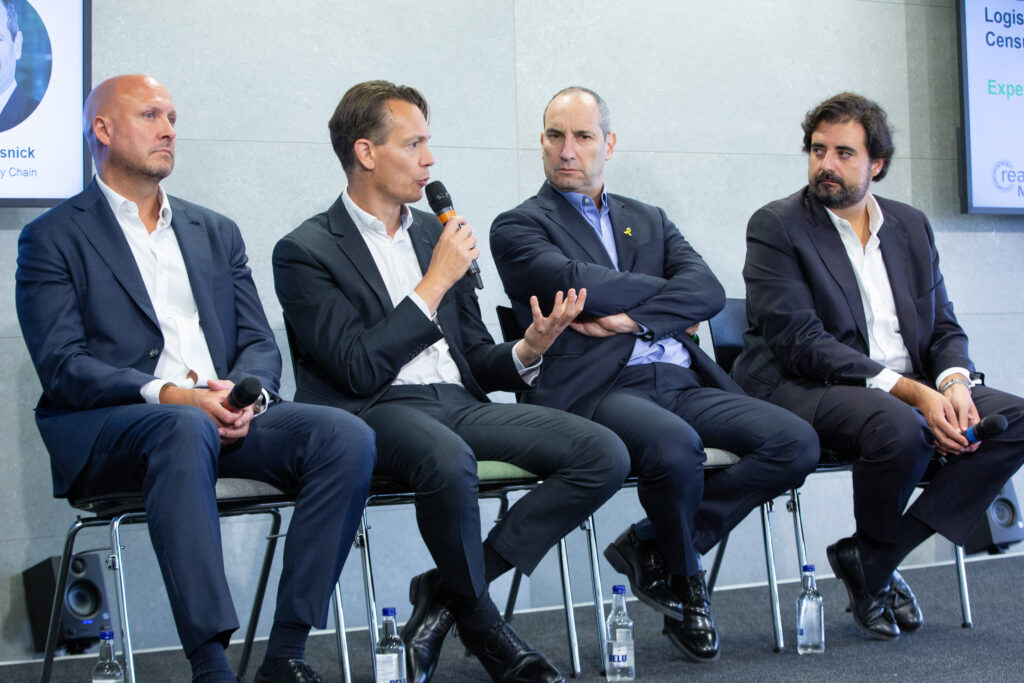Resilience of power supplies a growing concern for logistics
Resilience of power supplies is as much of a concern now as the resilience of supply chains, experts agreed at the presentation of the 2025 European Logistics Real Estate Census, jointly produced by Savills, Brookfield Properties and Analytiqa, at an event organised with Real Asset Media and hosted by Brookfield.

“ESG is seen as a competitive differentiator”, said Sander Breugelmans, Senior Vice President, Head of Capital Deployment Europe, Prologis. “In such a difficult macroeconomic context, there is a focus on keeping operating costs and electricity bills low and to have the capacity to automate warehouses.”
There has been a lot of focus on the energy needs of data centres, but the logistics sector’s requirements have also shot up as automation has become a must.
“Power availability is an increasingly important element now, more so than location”, Breugelmans said. “Prologis is doing its first off-grid development to avoid these constraints.”
Tenants want future-proof facilities. and the availability of power and cheap energy are going to be in demand.
“In 2026 the theme is going to be resilience, not just of supply chains, but most importantly of power supplies”, said Ben Segelman, European Head of Logistics and Data Centre Real Estate, Brookfield Asset Management.
“Access to power is an issue and cost management is an issue, as costs have increased”, said Saul Resnick, CEO, DHL Supply Chain. “And carbon neutrality is a basic assumption now: you could call it a hygiene factor.”
This desire to control costs and have access to green energy is behind the success of Iberia in attracting investments in the logistics sector, said Pedro Figueiras, Head of Capital Markets, Savills Portugal.
“We are seeing European companies looking to move their operations to the region to take advantage of lower energy prices”, he said. “In Iberia 80% of the energy mix is renewable, so energy costs are lower.”
Portugal in particular is also benefitting from the nearshoring trend, as Chinese manufacturing companies are setting up facilities to serve both European and US markets, the East Coast in particular. “It is closer than you think”, said Figueras. The country has recorded 40% rent growth in the last four years.
Iberia is not the only region that is being targeted by Asian companies seeking a foothold in European markets.
“We are seeing a growing number of Asian companies, especially Chinese retailers, that are seeking more space in European markets and they are ready and very quick to move”, said Segelman. “They want to frontload their access to EU markets. Also the big US groups, which had reduced take-up, are now back in most markets.”
Demand is now stronger and, crucially, more diverse, from food-related retail to manufacturing to traditional retail. The new kid on the block is the defence sector which is growing fast and will need more infrastructure. “This will have an impact on the logistics sector, but it is difficult to tell what kind of space they will need”, said Resnick.
Looking ahead, build-to-suit is the way ahead, as speculative development is regarded as too risky in the current market.
“We are focused on capturing the build-to-suit demand”, said Breugelmans. “It is not easy, because decisions are taking longer to get over the line, but this year 80% of our development starts have been build-to-suit, the strongest pipeline we’ve had since the pandemic. Just last month we built 1.3 million sq ft of build-to-suit for Marks & Spencer in the UK.”



